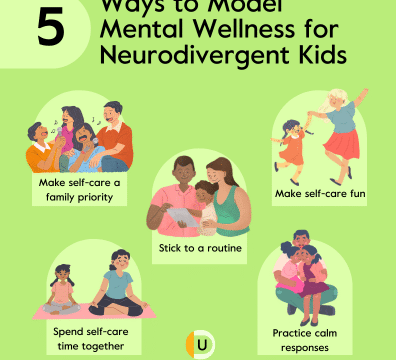Everyone experiences moments when their mood dips or life feels a little heavier than usual. While occasional low moods are normal, finding natural ways to uplift yourself can make a significant difference in your overall well-being. The good news is that small, consistent healthy habits can work wonders to naturally improve your mood and boost your energy. These strategies do not rely on quick fixes or artificial stimulants, but instead focus on nourishing your mind and body in simple, sustainable ways.
One of the most effective ways to improve mood is through physical activity. Exercise releases endorphins, the body’s natural “feel-good” chemicals, which can help reduce stress and promote a sense of happiness. You don’t need to run a marathon or join a gym to benefit. Even short daily walks, gentle stretching, or a few minutes of yoga can make a noticeable difference. Walking outdoors, in particular, offers the added benefit of exposure to natural light and fresh air, both of which can enhance mental clarity and provide a sense of calm. Regular movement helps regulate hormones, improves sleep quality, and can give you a subtle but persistent boost in overall mood.
Nutrition also plays a vital role in emotional well-being. Consuming a balanced diet rich in whole foods, fruits, vegetables, lean proteins, and healthy fats supports brain function and stabilizes energy levels. Certain nutrients, such as omega-3 fatty acids found in fish, walnuts, and flaxseeds, have been linked to improved mood and cognitive health. Likewise, complex carbohydrates like oats, quinoa, and sweet potatoes help maintain steady blood sugar levels, which prevents energy crashes and irritability. Staying hydrated is equally important, as even mild dehydration can lead to fatigue and irritability. By paying attention to what you eat and drink, you create a foundation for a more stable and positive mood throughout the day.
Sleep cannot be overlooked when it comes to mood regulation. Quality rest allows the brain and body to recover, process emotions, and reset for the day ahead. Adults typically need seven to nine hours of sleep per night, but the focus should be on consistency and routine. Going to bed and waking up at the same time every day, avoiding heavy meals or caffeine close to bedtime, and creating a calming nighttime environment can dramatically improve sleep quality. A restful night promotes resilience, emotional balance, and sharper thinking, all of which contribute to a naturally elevated mood.
Mindfulness and relaxation techniques provide additional support for emotional health. Practices such as meditation, deep breathing exercises, and progressive muscle relaxation help reduce stress and increase self-awareness. By focusing on the present moment, you can step away from repetitive negative thoughts and develop a calmer perspective. Even a few minutes of focused breathing or guided meditation each day can lower anxiety levels and make your mind feel clearer and lighter. Mindfulness is a gentle reminder that your thoughts do not have to control your emotions and that you can cultivate peace even during busy or challenging moments.
Engaging in creative activities is another way to naturally boost mood. Art, music, writing, or any form of creative expression allows individuals to channel emotions constructively. Creative outlets provide a sense of accomplishment and personal fulfillment, while also offering a break from daily stressors. You don’t need to be a professional to reap these benefits; coloring, journaling, playing a musical instrument, or simply experimenting with new hobbies can be remarkably therapeutic. These activities foster joy and creativity, stimulating the brain in ways that support emotional resilience.
Social connections are vital for maintaining a positive mood. Spending time with supportive friends and family, or even participating in community activities, strengthens emotional bonds and combats feelings of isolation. Engaging in meaningful conversations, sharing laughter, or offering and receiving support helps regulate emotions and fosters a sense of belonging. While it is natural to need occasional solitude, nurturing positive social interactions can lift spirits and provide encouragement during challenging times. Even small gestures, such as a phone call or a shared meal, can make a big difference in overall mood.
Nature exposure is another simple yet powerful tool for emotional health. Time spent outdoors, whether walking in a park, gardening, or simply sitting in a sunny spot, can improve mental clarity and reduce stress. Nature has a calming effect on the nervous system, and sunlight helps regulate the body’s natural circadian rhythm while boosting vitamin D levels, which are linked to mood regulation. Regular interaction with the natural world encourages mindfulness and appreciation for the present, which naturally contributes to a more positive outlook on life.
Laughter and humor are often underrated tools for improving mood. Laughter triggers the release of endorphins, relaxes muscles, and can create a sense of connection with others. Finding moments to laugh, whether through funny videos, conversations with friends, or humorous books, provides a natural and immediate mood lift. Humor also helps reframe challenging situations, offering perspective and resilience when faced with stress.
Finally, practicing gratitude and positive thinking supports emotional well-being. Taking time to reflect on what you are thankful for or acknowledging small daily successes encourages a more optimistic mindset. Simple practices, such as keeping a gratitude journal or expressing appreciation to others, cultivate positive emotions and strengthen resilience against negativity. By focusing on what is going well, you train your mind to recognize positive experiences more readily, which gradually improves overall mood and life satisfaction.
In conclusion, lifting your mood naturally is about consistent, intentional choices that nurture both body and mind. Incorporating physical activity, balanced nutrition, sufficient sleep, mindfulness, creative expression, social connections, nature exposure, laughter, and gratitude can transform emotional health in sustainable ways. These approaches are simple, safe, and accessible to most people, offering lasting benefits that go beyond temporary happiness. By embracing these natural strategies, you create a supportive environment for yourself where positive emotions can flourish, stress is more manageable, and daily life feels lighter and more fulfilling.
Healthy mood habits do not require perfection or extreme effort. They are about making small, deliberate choices every day that honor your mental and physical well-being. Over time, these practices accumulate, creating a foundation of resilience, balance, and natural joy. By integrating these tips into your daily routine, you can cultivate a more uplifting and positive mindset, leading to a healthier, happier, and more balanced life.






